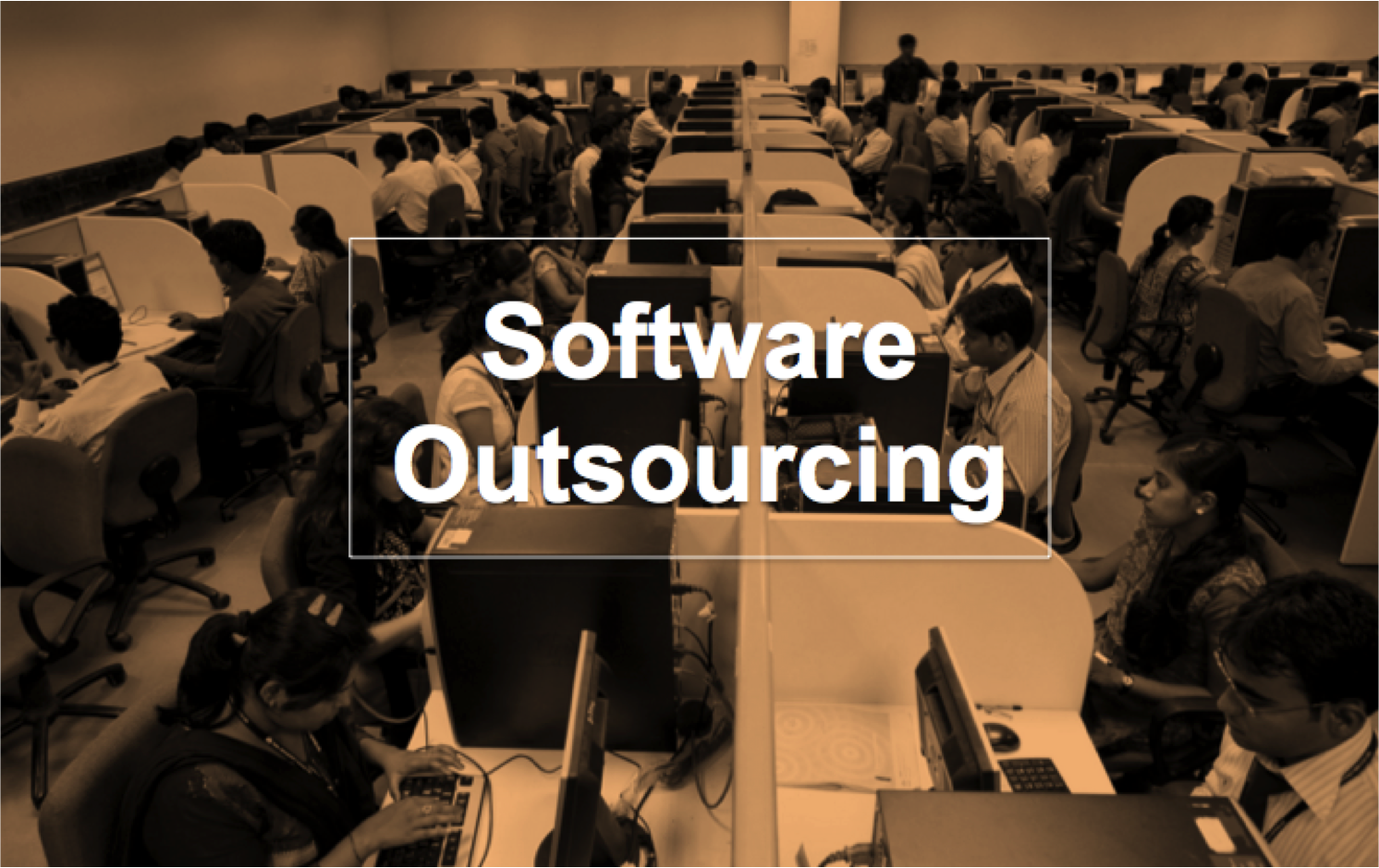Vietnam’s IT Sector: Key Industries to Watch in a Rapidly Growing Market
— November 10, 2024Vietnam’s IT sector has seen a significant transformation in recent years, moving from low-tech manufacturing to a more diversified, service-oriented economy. With Industry 4.0 technologies reshaping Vietnam’s industrial landscape, the IT sector is emerging as a key pillar for economic growth. This shift is attracting both domestic and foreign investment, positioning Vietnam as a major competitor to IT giants in China and India. This article highlights five prominent sub-sectors within Vietnam’s IT industry that are showing remarkable growth and potential.
Foreign Investment Fuels Growth in Vietnam’s IT Sector
Vietnam’s IT industry is heavily supported by foreign direct investment (FDI), with multinational companies establishing large-scale projects, especially in electronics and software. In 2017, foreign-invested projects contributed to approximately 86% of the sector’s revenue, particularly in hardware manufacturing. Vietnam has been recognized by Tholons as the eighth leading global provider of IT services, emphasizing the nation’s rising prominence in the field. Companies like Samsung, with eight factories and an R&D center, and Intel, which recently opened a chip assembly plant in Ho Chi Minh City, exemplify this investment-driven growth.
Leading Sectors in Vietnam’s IT Sector
To understand what’s driving this growth, let’s explore five trending sub-sectors that showcase the breadth of Vietnam’s IT industry:
1. Fintech
Vietnam’s fintech sector is poised for rapid expansion, with projected revenues reaching $7.8 billion by 2020. The country’s young, tech-savvy population and rising internet penetration rates have provided a favorable environment for fintech innovation. Vietnam currently hosts around 120 fintech companies, offering services such as digital payments, wealth management, and blockchain solutions.
– Digital Payments: Leading the fintech sector, mobile payment apps like MoMo, Moca, and Zalo Pay dominate the digital payment landscape. These apps have facilitated the transition from cash-based transactions to cashless payments, particularly among urban youth.
– Peer-to-Peer (P2P) Lending: P2P lending is gaining traction, with companies like Tima, Growth Wealth, and Trust Circle providing alternatives to traditional banking. This sub-sector addresses the need for accessible financing options for individuals and small businesses.
– Blockchain and Cryptocurrency: Blockchain technology has captured interest, with companies like TomoChain and Kyber Network leading in cryptocurrency transactions. In 2018, Vietnam hosted its first international blockchain conference, underscoring the country’s commitment to exploring blockchain’s potential.
2. Artificial Intelligence (AI)
Vietnam’s AI sector is expanding, with applications spanning various fields, including healthcare, education, transportation, and cybersecurity. The government’s recent Resolution No. 50-NQ-TW aims to increase FDI in high-tech industries, providing a boost to the development of AI technologies.
– Case Studies: Local conglomerates are actively integrating AI into their operations. For example, FPT Corporation has implemented AI-driven smart traffic solutions in Ho Chi Minh City, while Viettel Group uses AI to enhance endoscopic procedures and bolster cybersecurity.
The government’s supportive stance is crucial, as policies continue to encourage the adoption of AI solutions across public and private sectors, helping Vietnam position itself in the global AI landscape.
3. E-Commerce
Vietnam’s e-commerce market is projected to be the third largest in Southeast Asia by 2025, following Indonesia and Thailand. Concentrated mainly in Hanoi and Ho Chi Minh City, e-commerce accounts for approximately 70% of the country’s online sales, with significant growth potential in rural areas where internet connectivity is increasing.
– Domestic Players: Vietnamese e-commerce companies like Shopee, Sendo, and Tiki are strong competitors in the market, contending with regional giants such as Lazada. Social media platforms like Instagram and Facebook are also commonly used by consumers for e-commerce, reflecting the social media-savvy nature of Vietnamese shoppers.
– Challenges: Despite its growth, the e-commerce sector faces challenges such as customer trust, competition, and high logistics costs. The government and industry players are working to address these hurdles, creating an enabling environment for continued growth.
4. Software Outsourcing
Vietnam has emerged as a viable alternative for software outsourcing, offering a more affordable option than traditional outsourcing hubs like China and India. In 2018, the software outsourcing industry reached revenues of $8.8 billion, supported by a well-trained workforce and government incentives.
– High-Tech Parks and Incentives: The government is developing high-tech parks, such as in Da Nang, to attract outsourcing businesses. These parks provide tax incentives and infrastructure tailored to the needs of IT companies. Japanese businesses, in particular, have shown a strong interest in Vietnam’s outsourcing sector.
– Growth Potential and Challenges: While Vietnam is making strides, it still faces challenges in scaling up its outsourcing industry to meet global demand. Improvements in English proficiency are essential for Vietnam to become a top-tier outsourcing destination.
5. Education Technology (EdTech)
Vietnam’s EdTech industry has drawn considerable investment, with $55 million allocated in 2018 alone. The sector is benefiting from the country’s large kindergarten to grade 12 population, with families spending up to 40% of their income on education.
– Investment and Growth: Startups like Everest Education, which recently secured a $4 million investment, exemplify the interest in tech-driven education solutions. Companies like Violen.vn, Hocmai.vn, and Topical are making strides in bridging the gap between traditional education and the demands of the modern workforce.
With rising demand for personalized and accessible learning solutions, EdTech in Vietnam is positioned to continue its growth, attracting foreign investment from countries such as Japan, South Korea, Singapore, and Australia.
6. Cybersecurity
With Vietnam’s growing digital economy, cybersecurity has become an essential sector. As businesses and government agencies digitize, they are increasingly vulnerable to cyberattacks, which have been on the rise in recent years. Vietnam ranks as one of the countries most affected by cyber threats, spurring a demand for cybersecurity solutions and expertise.
To address this, the Vietnamese government has implemented cybersecurity laws that require businesses to strengthen their defenses, leading to increased investment in cybersecurity software, infrastructure, and talent. Vietnamese firms like BKAV and CMC Corporation are leading in this field, offering a range of products and services, from firewall protection to advanced threat intelligence solutions.
Multinational companies have also entered Vietnam’s cybersecurity market, bringing advanced technology and expertise. The government has made cybersecurity a national priority, which, combined with rising digital adoption across industries, is driving significant growth in the sector.
7. Cloud Computing and Data Centers
Vietnam’s cloud computing and data center industry is expanding rapidly, driven by the demand for scalable, flexible IT infrastructure from businesses across sectors. As organizations shift from on-premises systems to cloud-based solutions, they are increasingly reliant on data centers for secure storage and real-time data processing.
Major technology firms, such as Microsoft, Amazon Web Services (AWS), and IBM, have entered the Vietnamese market, offering cloud solutions tailored to the needs of local businesses. Local companies, including FPT Telecom and CMC Telecom, are also investing in data centers to capture a share of this market. FPT recently opened a tier-3 data center, one of the most advanced in the country, which serves both local and regional clients.
Government support for cloud adoption, including favorable tax policies and infrastructure investment, is accelerating growth in this area. Moreover, as Vietnam continues its Industry 4.0 journey, sectors such as banking, e-commerce, and education increasingly rely on cloud computing for efficient operations and data management.
8. Smart City Initiatives
Vietnam’s smart city development aligns with the government’s broader digital transformation goals. Major urban centers like Ho Chi Minh City, Hanoi, and Da Nang are implementing smart city solutions to address challenges in urbanization, traffic congestion, and environmental sustainability.
Smart traffic management is a key area of focus. For example, Ho Chi Minh City is using AI and IoT to monitor traffic flow, detect accidents, and optimize traffic signals. This approach reduces congestion, improves public safety, and lowers air pollution. Similar systems are being adopted in other cities, with plans to expand the network to smaller cities in the coming years.
Public safety and surveillance are also critical components of Vietnam’s smart city initiatives. The deployment of CCTV cameras with AI-powered analytics has improved crime detection and public safety. Additionally, smart lighting systems, which automatically adjust based on foot traffic, are being introduced to reduce energy consumption in public spaces.
Vietnam’s smart city strategy has garnered interest from international investors, including Japanese and Korean technology firms, which are collaborating with local governments on pilot projects. With continued investment, smart city initiatives are expected to transform Vietnam’s urban centers, making them more livable, efficient, and economically productive.
9. HealthTech and Telemedicine
Health technology, or HealthTech, is another rapidly growing industry in Vietnam, driven by the need to improve healthcare access and quality across the country. HealthTech solutions such as telemedicine, electronic health records (EHR), and health data analytics are transforming healthcare delivery, making it more accessible, efficient, and data-driven.
The COVID-19 pandemic accelerated the adoption of telemedicine in Vietnam, with hospitals and clinics using video consultations to reach patients in rural areas. Platforms like eDoctor and Jio Health offer remote healthcare services, providing consultations, diagnostics, and medication delivery. This growth reflects a rising demand for accessible healthcare services and has led to new partnerships between local and international HealthTech firms.
Electronic health records (EHR) are also becoming common in major hospitals, improving patient care by allowing seamless information sharing among healthcare providers. This digitization trend, encouraged by the Ministry of Health, aims to create a unified health data system that can support better clinical decisions and streamline hospital management.
Health data analytics is another promising area within HealthTech, enabling healthcare providers to make data-driven decisions. For example, predictive analytics can help hospitals manage patient flow and allocate resources more effectively. With rising investment in HealthTech and telemedicine, Vietnam’s healthcare system is poised to become more responsive and accessible.
10. Digital Entertainment and Gaming
Vietnam’s digital entertainment and gaming industry is thriving, driven by a young population, increasing smartphone penetration, and rising internet access. Vietnam has become a hotspot for mobile and online gaming, with local developers gaining international recognition. Mobile games like “Flappy Bird” by Vietnamese developer Nguyen Ha Dong have set global trends, highlighting the country’s potential as a creative force in the gaming industry.
Today, companies like VNG Corporation have a global reach, producing popular games and entertainment apps that are widely downloaded in Southeast Asia and beyond. These companies are exploring advanced technologies like virtual reality (VR) and augmented reality (AR) to offer more immersive experiences, catering to the demands of a tech-savvy, entertainment-hungry audience.
Vietnam’s government is actively encouraging this industry, recognizing it as a potential source of exports and economic growth. Through initiatives that provide tax breaks and support game development, the country is fostering a competitive gaming ecosystem that attracts both domestic and international players.
Government Support Drives IT Sector Expansion
The Vietnamese government has introduced a range of incentives to foster growth in the IT sector. IT companies benefit from corporate income tax (CIT) exemptions for up to four years, followed by a 50% tax reduction for an additional nine years. Additionally, the CIT rate is set at 10% for a 15-year period, compared to the standard 20%. These incentives, particularly for computer programming activities, are designed to attract further investment into the industry.
Resolution No. 41/NQ-CP offers personal income tax reductions for IT workers, while various high-tech parks provide land rent exemptions and streamlined administrative procedures. For example, the Da Nang High-Tech Park not only provides CIT exemptions but also import duty waivers, creating a favorable environment for investors.
Building a Skilled Workforce to Support IT Growth
To support the expanding IT industry, the government has prioritized building a skilled workforce. Vietnam is currently producing over 25,000 technical graduates each year, with the goal of developing one million IT professionals by 2020. This investment in human capital has transformed the country’s talent landscape, addressing concerns from previous years about the need for extensive retraining of new hires.
Vietnamese universities are aligning their curricula with industry needs, producing graduates equipped with the technical skills and knowledge required by multinational and domestic IT firms. This talent pool is a significant advantage, allowing Vietnam to compete on the global stage as an outsourcing and tech development hub.
Vietnam’s IT Future: Sustained Growth and Opportunities
With annual growth rates in the IT sector expected to reach approximately 30%, Vietnam’s IT landscape shows no signs of slowing. The government’s proactive approach in embracing Industry 4.0 and the ASEAN Smart City Network highlights Vietnam’s commitment to digital transformation. Policies supporting the development of the IT industry, combined with Vietnam’s dynamic workforce and increasing FDI, create a solid foundation for continued growth.
In the years to come, Vietnam is likely to remain a major player in the IT industry, attracting global investors and advancing its technology ecosystem. As Vietnam shifts from a manufacturing-driven economy to a high-tech, service-oriented landscape, opportunities in fintech, AI, e-commerce, software outsourcing, EdTech and more will continue to expand, making the country one of the most promising emerging markets in the IT sector.




















